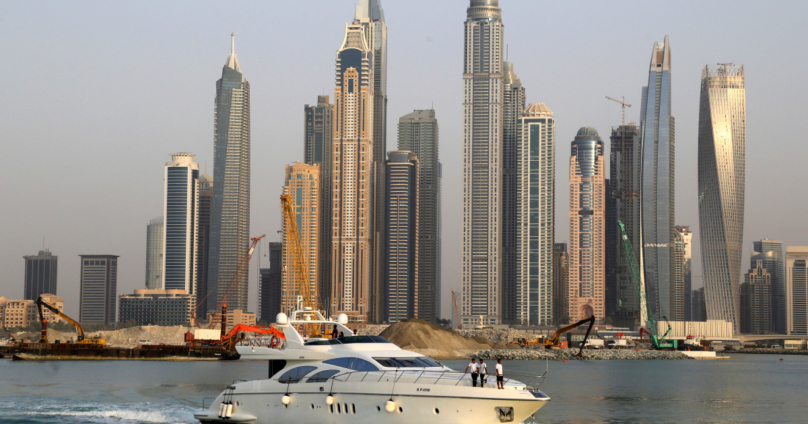The United Arab Emirates (UAE) announced it is opening a path to citizenship for select foreigners, but it is unclear if new passport holders will benefit from the public welfare system.
Dubai ruler and UAE Prime Minister Sheikh Mohammed bin Rashed Al Maktoum on Saturday said “investors, specialised talents and professionals including scientists, doctors, engineers, artists, authors and their families” would be eligible for naturalisation under the new amendment to the citizenship law.
“The UAE cabinet, local emiri courts and executive councils will nominate those eligible for the citizenship under clear criteria set for each category,” he said. “The law allows receivers of the UAE passport to keep their existing citizenship.”
The UAE government said the amendment “aims at appreciating the talents and competencies present in the UAE and attracting more bright minds to the Emirati community”.
Citizens make up a small minority of the nine million-strong population of the UAE, which has a huge migrant labour force, largely from South Asia, some of whom are second or third generation residents.
UAE’s visa system
Foreigners in the UAE usually have renewable visas valid for only a few years tied to employment.
The government in recent has made its visa policy more flexible, offering longer residencies for certain types of investors, students and professionals.
Last year, the government extended its “golden” visa system – which grants 10-year residency in the Gulf state – to certain professionals, specialised degree holders and others.
The UAE also has a growing community of wealthy expats attracted by the low-tax regime and the luxury megaprojects and tourist attractions of the larger emirates.
The Emirates has long guaranteed its 1.4 million citizens a high standard of living through reserved jobs and a cradle to grave welfare system. To protect it, they have seldom allowed naturalisations.
It was unclear if new passport holders would benefit from the public welfare system. The UAE spends billions of dollars each year on free education, healthcare, housing loans and grants for its citizens.
In November, the UAE announced plans to overhaul of the country’s Islamic personal laws, allowing unmarried couples to cohabitate, loosening alcohol restrictions and criminalising so-called “honour killings”.
Latest Stories
-
I’m confident posterity will judge my performance well – Akufo-Addo
1 minute -
Syria’s minorities seek security as country charts new future
42 minutes -
Prof. Nana Aba Appiah Amfo re-appointed as Vice-Chancellor of the University of Ghana
49 minutes -
German police probe market attack security and warnings
49 minutes -
Grief and anger in Magdeburg after Christmas market attack
50 minutes -
Baltasar Coin becomes first Ghanaian meme coin to hit DEX Screener at $100K market cap
2 hours -
EC blames re-collation of disputed results on widespread lawlessness by party supporters
2 hours -
Top 20 Ghanaian songs released in 2024
2 hours -
Beating Messi’s Inter Miami to MLS Cup feels amazing – Joseph Paintsil
2 hours -
NDC administration will reverse all ‘last-minute’ gov’t employee promotions – Asiedu Nketiah
3 hours -
Kudus sights ‘authority and kingship’ for elephant stool celebration
3 hours -
We’ll embrace cutting-edge technologies to address emerging healthcare needs – Prof. Antwi-Kusi
3 hours -
Nana Aba Anamoah, Cwesi Oteng special guests for Philip Nai and Friends’ charity event
3 hours -
Environmental protection officers receive training on how to tackle climate change
3 hours -
CLOGSAG vows to resist partisan appointments in Civil, Local Government Service
5 hours

